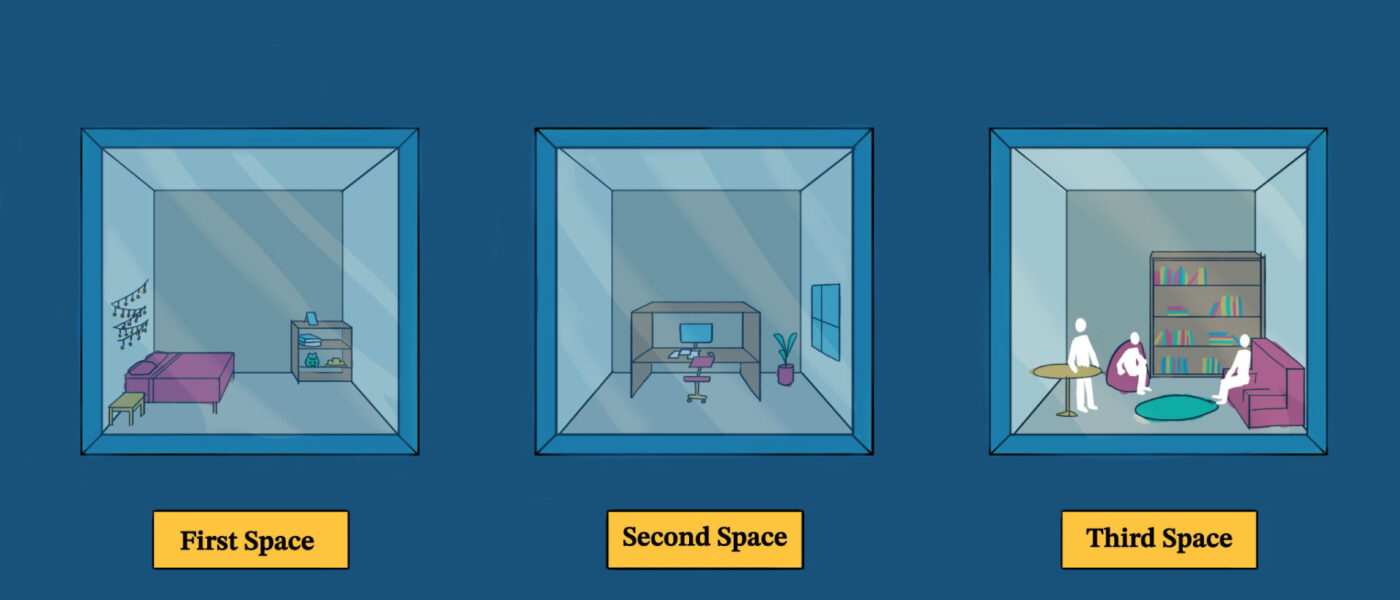The Death Of Third Places In America
The concept of the “third place” was first introduced by sociologist Ray Oldenburg in 1989.
It describes informal gathering spots like cafes, parks and community centers where people form connections.
However, in today’s society, particularly in America, third places are dying.
Social norms now favor privatized leisure, like streaming, online shopping and social media. Businesses, in turn, churn out technology and environments that support those lifestyles. We live in an age where people can get away with not leaving their homes.
Public spaces are also being privatized, furthering the divide between social classes in America.
Parks and open fields are being transformed into gated communities and high-end stores, making them harder to access for low-income communities thanks to loitering restrictions and inflated processes.
This societal transition is affecting children.
Previously, kids spent time outdoors, socializing with friends, conjuring up games with their imagination.
However, as fewer parents own homes or reside in safe neighborhoods, iPads are increasingly shoved into kids’ hands. That shift is a detriment to emotional intelligence and social skills.
Social media capitalizes on an oversupply of human connection. However, the online connections we make, such as commenting on posts or the tracking of friends’ activities, lack depth and meaning.
Unlike other countries where streets are extensions of homes, American landscapes prioritize individualism over communal interaction.
When the freedom to roam and engage with strangers is restricted, there’s a problem. Outdoor spaces become places where the primary goal is spending money rather than finding rest and relaxation.
Interestingly enough, this phenomenon also affects the affluent.
Spending time in lavish, personalized home environments like remodeled kitchens or private movie theaters limits spontaneous interactions with diverse people. While the wealthy may have luxurious relaxation spaces, they often miss out on casual connections that occur in public settings.
The 20th century concept of the nuclear family gained popularity because it was more convenient for companies if people relied solely on one person they lived with to promote company usage and profit.
However, relying on just one person for all your emotional needs is not realistic. The saying “it takes a village to raise a child” emphasizes the importance of community support.
People thrive when they’re part of a community. But having only one intimate partner makes people less skilled at interacting with others.
We need to cultivate empathy. We need to start taking care of each other.
But that doesn’t seem likely for many marginalized people. For example, anti-trans bills are on the rise. Legislation such as this creates scenarios where kids like Nex Benedict get jumped and killed in their school restrooms.
The people around you are important to your everyday life.
It’s critical to treat everyone with care regardless of who they are to create a warm and inviting environment. If not for them, then for you.

